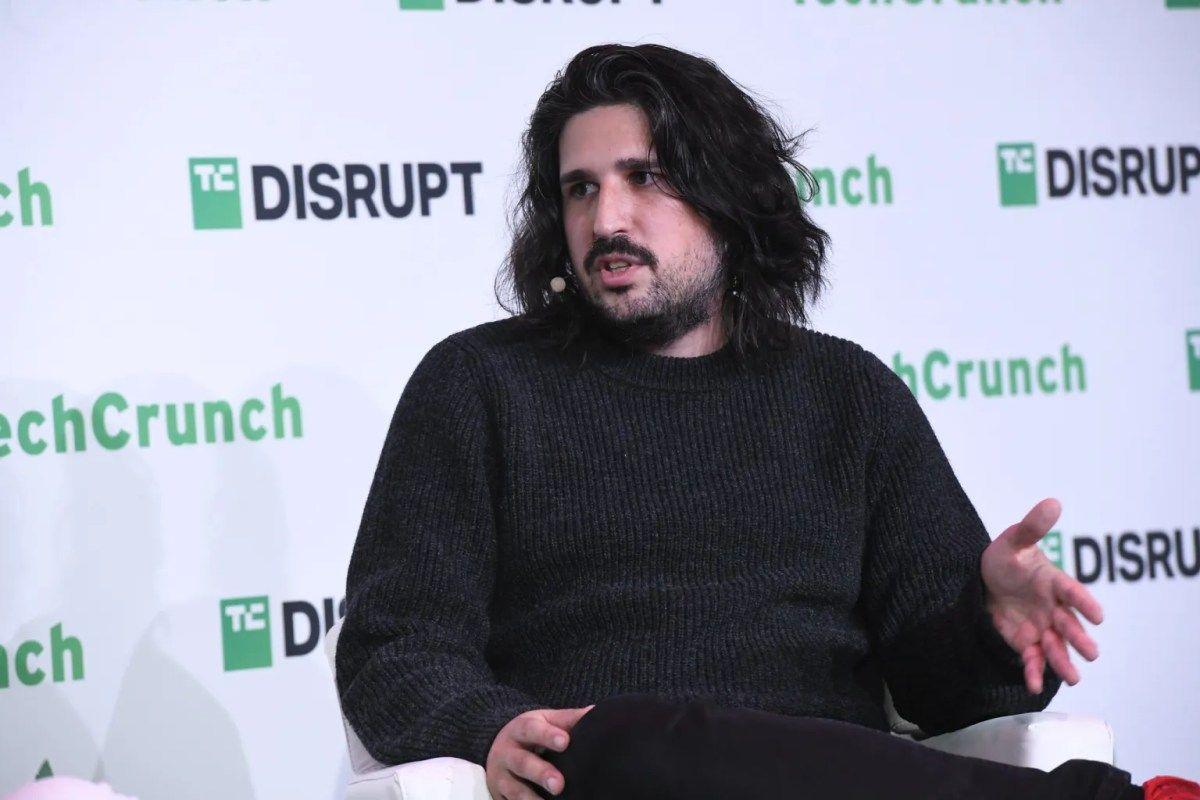Decart Secures $100M Funding at $3.1B Valuation, Pushing Boundaries of Real-Time Creative AI
2 Sources
2 Sources
[1]
Exclusive: Decart raises $100 million at a $3.1 billion valuation, chasing the future of real-time creative AI
Dean Leitersdorf and I are on Zoom, watching a Sabrina Carpenter music video. In "Taste," Carpenter and Jenna Ortega comically feud in over-the-top fashion -- complete with chainsaws, machetes, and camp. But we're not watching the original. In real-time, the video is transfigured into a snowy animated wonderland, courtesy of an AI model called Mirage. The model was built by Decart, an AI lab focused on interactive experiences that Leitersdorf cofounded and leads. The site calls Mirage a "world transformation model," but Leitersdorf prefers "livestream diffusion model" -- "a way better name," he says. "Look, I'm a Lego man!" Leitersdorf laughs as we scroll through other possibilities on Mirage. Effusively, Leitersdorf shows me what it would look like to turn his video into "Zombies!" mode, flying through "cabincore" and steampunk modes. In "World of Wizards" mode, he shows me how mundane objects -- like pens -- appear as spell-casting beams of light. This is both fun and games, and entirely serious -- Leitersdorf, who cofounded the company with Moshe Shalev in 2023, has long been clear about the depth of his ambition: He wants Decart (yes, named with the philosopher in mind) to be a trillion-dollar company. "We're here to build a billion-user consumer app," said Leitersdorf. "It can't be that ChatGPT is the last thing a billion people will install on their phones. It just can't be. The next thing a billion people install on their phones needs to be a Decart product... So, the vision is this: A billion-user company that completely changes how people interact with tech. We do it through building one of the best AI labs in the world. One day, it'll be top five, top three, and then number one. And we do this with a very small but very fun, talented team." Decart has closed a $100 million Series B, valuing the company at $3.1 billion, Fortune has exclusively learned. Sequoia Capital, Benchmark, and Zeev Ventures, all existing investors, participated in the round, with new investor Aleph VC also joining. This round undoubtedly marks a valuation leap -- previous reports pin Decart's valuation at $500 million. (The company didn't comment on specific numbers.) What's more, Leitersdorf says the raise was wholly unnecessary -- despite raising $153 million in the last 11 months, Decart has spent less than $10 million of its investors' money. Nevertheless, Decart remains far from its trillion-dollar goals. But Leitersdorf -- born in Israel, raised in Palo Alto, and who earned his doctorate by 23 -- approaches that ambition with a hard-charging, exuberant confidence. "Give it five years, 10 years," said Leitersdorf. "If it works, that's incredible. And if it doesn't, you had the best five years of your life. It took a year for us to say it out in the open. And people definitely told us, once we said it publicly, 'You guys are crazy.' I say, let them call us crazy." And to be clear, it does sound crazy -- though not quite as crazy as it would have even a few years ago. Trillion-dollar companies didn't exist at all (at least, not in modern financial markets) until 2018, when Apple first crossed the mark. Today, depending on fluctuations, there are between eight and 10 trillion-plus companies in the world by market cap. The goalposts are moving in the markets, and the landscape of the Internet is also about to change. Leitersdorf has a clear view about how the Internet is changing post-ChatGPT. Pre-ChatGPT, he says, consumer Internet use could fall into four categories -- knowledge, e-commerce, communication, and creativity (or, if you like, fun). His case: With the rise of AI, the first three categories are already en route to being completely transformed by AI agents and chatbots. That leaves creativity and fun, where Decart believes it can make an impact, said Leitersdorf. "Think about Netflix, Minecraft, Instagram, TikTok, that's all a huge portion of the internet," he told Fortune. "It accounts for more than half the internet, both in time spent and in dollars. And AI still hasn't completely made its mark. Our TikTok feeds are flooded by AI cats. But that's not really a new experience. We're still doing lots of the same things we've done for years, opening apps we've long opened and engaging with them the way we always mostly have." Leitersdorf added: "Over time, we won't just be seeing Sabrina Carpenter videos. The experience itself will change." Joey Abrams curated the deals section of today's newsletter. Subscribe here. - BV Investment Partners acquired a majority stake in The Millenium Alliance, a New York City-based conferences and executive education platform. Financial terms were not disclosed.
[2]
Decart raises $100M on $3.1B valuation to grow real-time AI video platform - SiliconANGLE
Decart raises $100M on $3.1B valuation to grow real-time AI video platform Artificial intelligence developer Decart.AI Inc. today announced that it had raised $100 million in new funding on a $3.1 billion valuation to expand research and development, scale its infrastructure platform, grow its headcount and accelerate go-to-market efforts for its real-time generative AI technologies. Founded in 2023, Decart specializes in real-time generative video technology and GPU optimization, with a mission is to make AI fast, responsive and affordable enough to power dynamic, interactive experiences for millions of concurrent users. Decart's offering differs from traditional generative AI tools that produce static outputs by focusing on production-ready systems that can operate at low latency and high frame rates. The output is said by the company to enable entirely new categories of applications in gaming, entertainment, robotics and beyond. The company's capabilities are focused on a GPU optimization stack which drastically reduces the cost of generating video content using diffusion models, from hundreds or even thousands of dollars per hour to under 25 cents. The cost breakthrough makes large-scale, real-time AI video generation not only technically feasible but also commercially viable. Decart licenses its optimization technology to cloud providers and AI laboratories through multi-million-dollar contracts, providing the company with a steady revenue stream that funds its substantial compute requirements without relying heavily on venture capital burn, even if it's raising more money today. The company offers two products, Oasis and MirageLSD. Oasis, launched in November 2024, is a real-time video model that reached more than a million users within three days of release. MirageLSD, which launched this week, builds on the momentum from Oasis with enhanced capabilities for high-quality, low-latency video transformation. By providing developers with access to its real-time video generation capabilities, Decart says it is opening the door for new use cases in interactive media, immersive gaming environments, live streaming and virtual collaboration. Sequoia Capital Operations, Benchmark Capital Management Company, Zeev Ventures and new investor Aleph VC participated in the Series B round. "Decart represents the most compelling investment opportunity we have encountered in this space," said Shaun Maguire, partner at Sequoia Capital. "They're addressing genuinely complex technical challenges while attracting exceptional talent and executing with a velocity and precision that typically requires decades to achieve." The new funding brings the total amount raised by Decart to $153 million. The company previously raised a round of $32 million in December 2024.
Share
Share
Copy Link
Decart, an AI startup specializing in real-time generative video technology, has raised $100 million in a Series B funding round, valuing the company at $3.1 billion. The company aims to revolutionize interactive AI experiences and become a trillion-dollar entity.
Decart's Ambitious Funding Round and Vision
Decart, an AI startup specializing in real-time generative video technology, has secured a significant $100 million in Series B funding, valuing the company at an impressive $3.1 billion
1
. This latest round, led by existing investors Sequoia Capital, Benchmark, and Zeev Ventures, along with new investor Aleph VC, marks a substantial leap from the company's previous reported valuation of $500 million1
.
Source: Fortune
Innovative Technology and Products
At the heart of Decart's offering is its GPU optimization stack, which has dramatically reduced the cost of generating video content using diffusion models. The company claims to have brought down the cost from hundreds or thousands of dollars per hour to under 25 cents, making large-scale, real-time AI video generation both technically feasible and commercially viable
2
.Decart's product lineup includes:
- Oasis: Launched in November 2024, this real-time video model attracted over a million users within three days of release
2
. - MirageLSD: The company's latest offering, building on Oasis's success with enhanced capabilities for high-quality, low-latency video transformation
2
.

Source: SiliconANGLE
- Mirage: Described as a "livestream diffusion model" by co-founder Dean Leitersdorf, this tool can transform videos in real-time, creating various visual effects and styles
1
.
Ambitious Goals and Market Position
Decart's co-founders, Dean Leitersdorf and Moshe Shalev, have set their sights on ambitious targets. They aim to:
- Build a billion-user consumer app
1
. - Become one of the world's top AI labs
1
. - Ultimately, grow into a trillion-dollar company
1
.
While these goals may seem audacious, Leitersdorf approaches them with unwavering confidence. "Give it five years, 10 years," he stated. "If it works, that's incredible. And if it doesn't, you had the best five years of your life"
1
.Related Stories
Market Strategy and Future Outlook
Decart's strategy focuses on the "creativity and fun" segment of the internet, which Leitersdorf believes is ripe for AI-driven transformation. The company sees potential in revolutionizing experiences in areas such as Netflix, Minecraft, Instagram, and TikTok
1
.The startup is also generating revenue by licensing its optimization technology to cloud providers and AI laboratories through multi-million-dollar contracts. This approach provides Decart with a steady income stream to fund its substantial compute requirements without heavily relying on venture capital
2
.Investor Confidence and Industry Impact
The substantial funding round and high valuation reflect strong investor confidence in Decart's potential. Shaun Maguire, partner at Sequoia Capital, described Decart as "the most compelling investment opportunity we have encountered in this space"
2
.As Decart continues to push the boundaries of real-time creative AI, it's poised to open new possibilities in interactive media, immersive gaming, live streaming, and virtual collaboration. The company's progress and ambitious vision suggest that significant changes may be on the horizon for how we interact with and experience digital content.
References
Summarized by
Navi
Related Stories
Decart Secures $32M in Series A Funding, Pioneering Real-Time Generative AI and Efficient AI Infrastructure
20 Dec 2024•Technology

Decagon Secures $131 Million in Funding, Advancing AI-Powered Customer Service Solutions
24 Jun 2025•Business and Economy

Higgsfield secures $80M, hits $1.3B valuation as AI video generation explodes for marketers
16 Jan 2026•Startups

Recent Highlights
1
ByteDance Faces Hollywood Backlash After Seedance 2.0 Creates Unauthorized Celebrity Deepfakes
Technology

2
Microsoft AI chief predicts artificial intelligence will automate most white-collar jobs in 18 months
Business and Economy

3
Google reports state-sponsored hackers exploit Gemini AI across all stages of cyberattacks
Technology





